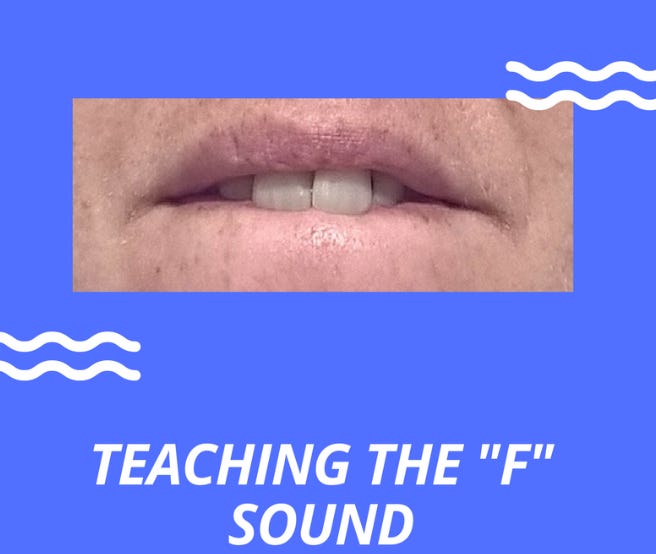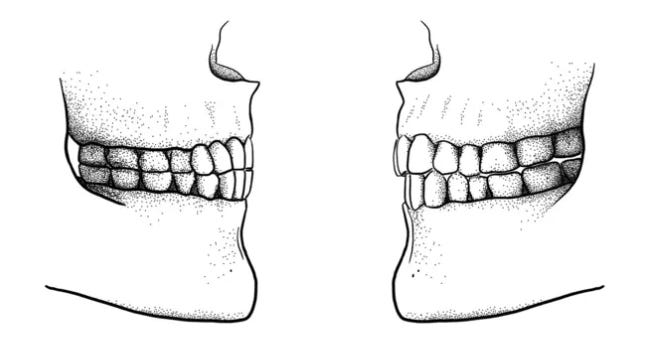agriculture made speech f-ing easier
like the sound
Did you know that we owe how we even communicate with one another to the dawn of agriculture? The sound of “f” and “v” used to be rare before we started planting seeds in the ground.
How could this be?
In 2019, a seminal study showed how it is very likely that our hunter-gatherer ancestors rarely used these sounds, as well as “p” and “w”. It turns out that what we eat doesn’t just impact our muscle and fat, but also the physical construction of our jaws and teeth. The study showed that these older societies would generally eat tougher foods that required much more chewing, which in turn developed more jaw muscles and a series of dental phenomena to align our teeth from edge-to-edge.
No human past adolescence had an overbite due to this type of ancient diet. And overbites make it about 30% easier for your top teeth to press against your bottom lip to make the labiodental sounds, “f” and “v”.
So as we began cooking our grains, tubers, and meat to be softer, we didn’t need to chew as much and are jaw stayed small and underdeveloped. Suddenly there were more accidental incidents of biting our bottom lip and producing these sounds, to the point that they became parts of our language.
As our societies changed, so did our food. As we cooked to make food easier to eat, we changed the way we communicated with one another. The Agricultural Revolution not only changed what we put in our mouth, but what came out of it.
Thanks for continuing to support polymorv, despite this writing hiatus. I have a growing list of topics that I’ve amassed this summer, but I haven’t put down as many words as I would like to, so I’m very grateful for the growing number of subscribers. ❤️
Keep an eye on your inboxes for the rest of the year as I’m looking to get out more snappy writings like this and take a few different angles on the same topic.



